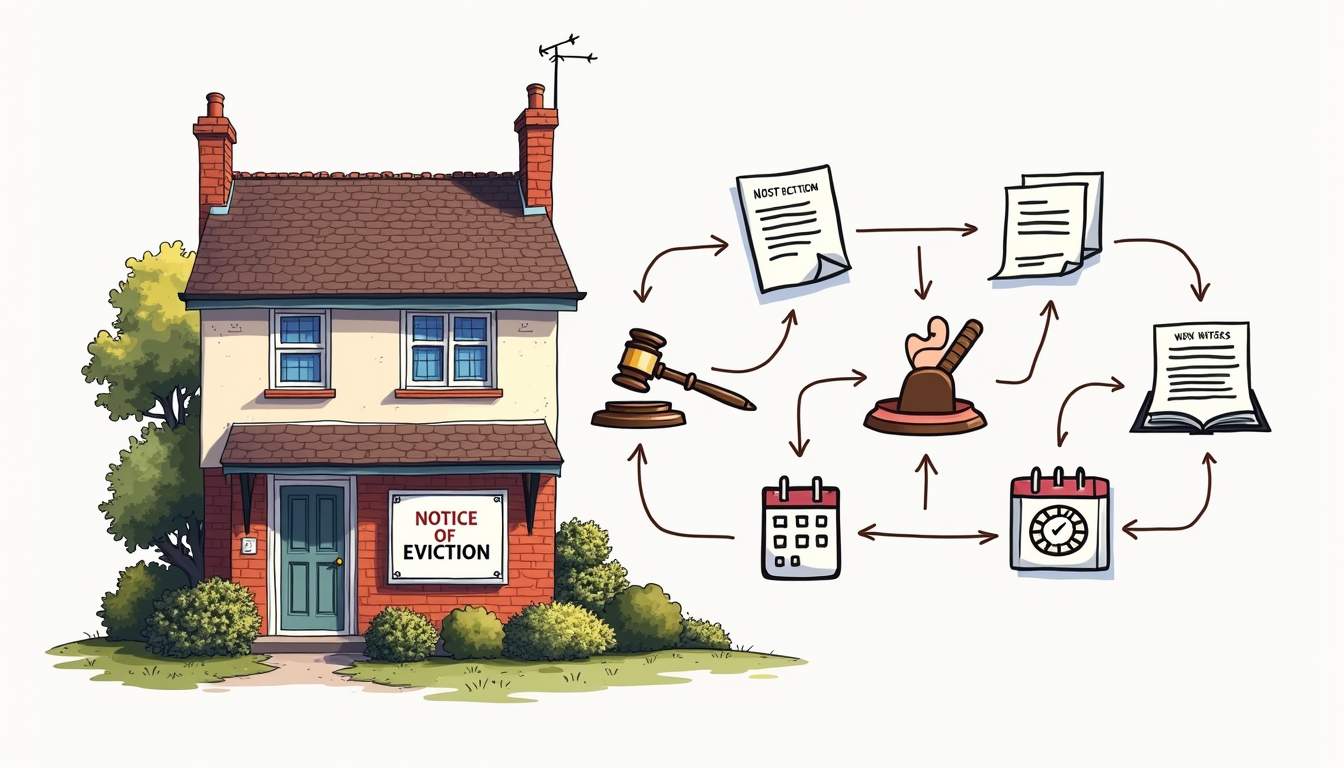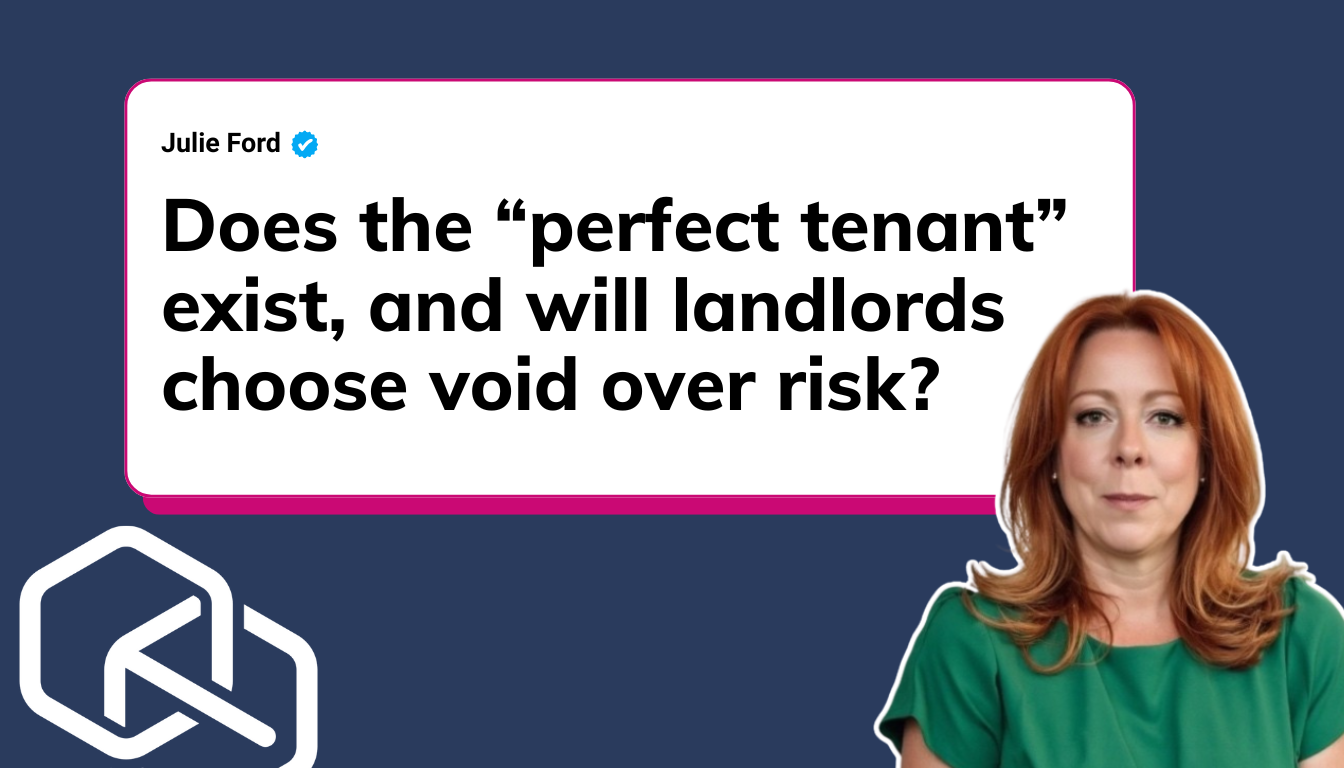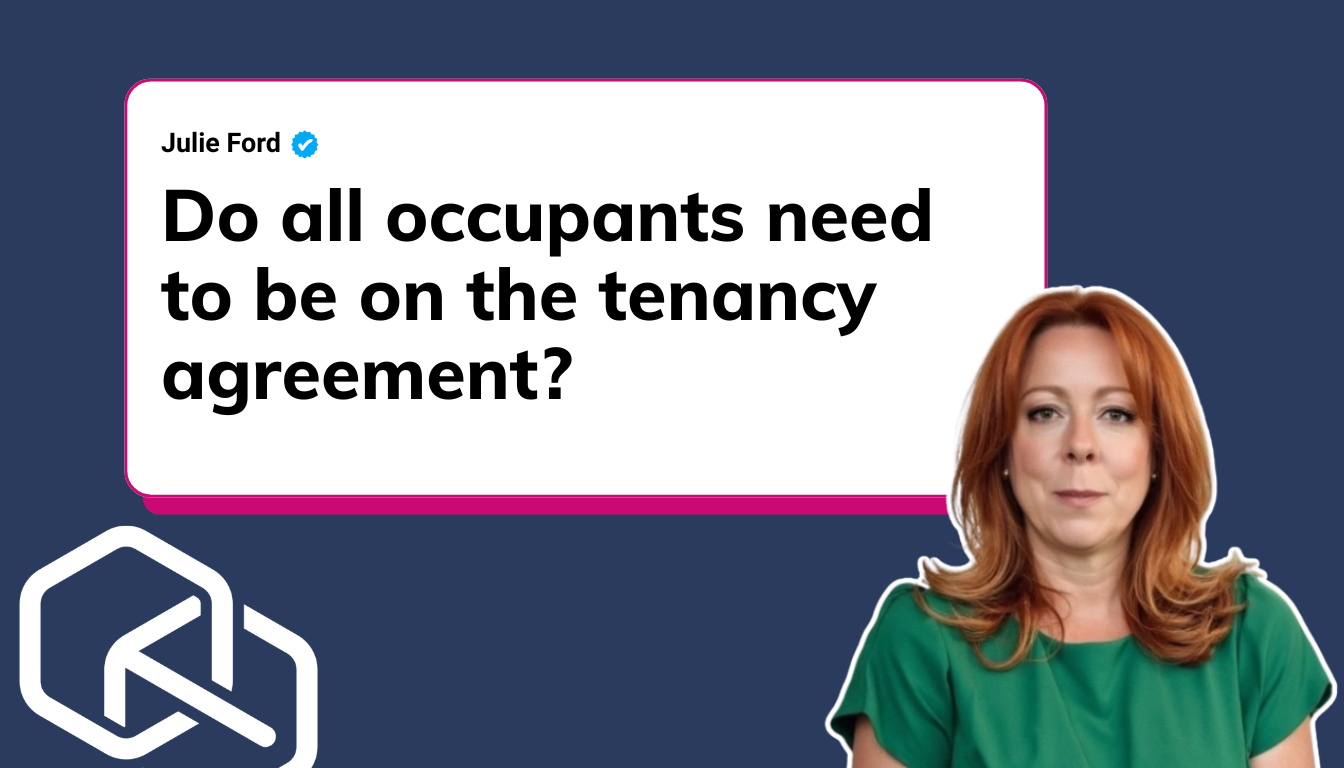Understanding the Basics of Tenant Eviction
Evicting a tenant is a process that many landlords may have to consider at some point. However, it is vital to approach this situation with a clear understanding of the legal framework surrounding tenant eviction in the UK. The laws aim to protect both landlords and tenants, ensuring that the eviction process is fair and just, reflecting the rights of all parties involved.
The Legal Grounds for Eviction
In the UK, there are specific legal grounds upon which a landlord can evict a tenant. These grounds can vary depending on whether the tenancy is a fixed-term or a periodic tenancy. Some common reasons include:
- Non-payment of rent.
- Damage to the property.
- Breach of tenancy terms.
- Property repossession by the landlord.
Understanding these grounds is essential, as the landlord must provide proof that they are justified in seeking eviction. Failure to follow legal grounds can result in complications and possible legal consequences. For instance, if a landlord attempts to evict a tenant without proper notice or justification, they may face legal action for unlawful eviction, which can lead to significant financial penalties and damage to their reputation.
The Importance of a Tenancy Agreement
A well-drafted tenancy agreement serves as the backbone of any rental arrangement, outlining the rights and responsibilities of both the tenant and landlord. It provides clarity on the terms of the tenancy, including payment schedules, property maintenance, and the procedures for eviction, if necessary.
The tenancy agreement can be a critical piece of evidence in the eviction process. If a dispute arises, the terms within this document can help clarify the situation and reinforce the landlord’s case if they need to pursue legal action. Moreover, a comprehensive agreement can also include clauses that address potential issues, such as subletting or pet ownership, which can prevent misunderstandings and conflicts down the line. By establishing clear expectations from the outset, both parties can foster a more harmonious rental relationship, reducing the likelihood of disputes that could lead to eviction. You need to make sure you have record of signing with software like COHO you can manage these easily as part of tenant onboardings and esignature.
The Eviction Process Step-by-Step
Navigating the eviction process can be daunting, but breaking it down into clear steps makes it more manageable. Below, we outline the crucial stages of legally evicting a tenant.
Serving a Notice of Eviction
The first step in the eviction process is serving the tenant with a notice of eviction. Depending on the grounds for eviction, the notice period can vary. Typically, landlords must issue either a Section 21 notice for a no-fault eviction or a Section 8 notice if there are specific grounds for the eviction.
It is essential to ensure that the notice is clear and provides adequate details regarding the reason for eviction, as well as the timeline in which the tenant must vacate the property. Proper service of this notice is paramount, as failure to comply with legal requirements could lead to delays or dismissals in court. Additionally, landlords should consider using a method of service that provides proof, such as registered mail or personal delivery, to safeguard against any disputes regarding whether the notice was received.
Applying for a Possession Order
If the tenant does not vacate the property after the notice period, the next step is to apply for a possession order. This is done through the county court and involves completing necessary paperwork and paying a court fee. The application must include all supporting documents, such as the notice served and evidence of the tenancy agreement.
Once the court processes the application, a hearing will be scheduled where both the landlord and tenant can present their case. It’s essential for landlords to prepare thoroughly for this hearing, as the judge’s decision will determine the outcome of the eviction process. Landlords may benefit from seeking legal advice or representation to ensure that their case is presented effectively, as the nuances of housing law can be complex and may significantly impact the court’s ruling.
Enforcing the Eviction
If the court grants a possession order, the landlord may need to take further steps to enforce the eviction. If the tenant still refuses to leave, the landlord will have to seek a warrant of possession, allowing bailiffs to carry out the eviction.
This stage can be particularly sensitive, so it’s crucial for landlords to remain professional and compassionate during the enforcement process to minimize potential conflict and distress for the tenant. It is also advisable for landlords to inform the tenant of their rights during this stage, including the possibility of negotiating a move-out date or exploring alternative housing options. Understanding the emotional toll that eviction can take on tenants can help landlords approach the situation with empathy, potentially leading to a smoother resolution for all parties involved.
The Role of the Court in Tenant Evictions
The UK’s legal system plays a significant role in the eviction process, ensuring fairness and legality. Understanding how the court functions in regard to evictions is essential for both landlords and tenants.
Court Hearings and Decisions
During a court hearing, both parties are given a chance to present their cases, including evidence supporting their claims. The court will review all submitted materials and consider the legal grounds for eviction as well as any tenant defences. This process is crucial, as it allows for a comprehensive examination of the circumstances surrounding the eviction, including any potential breaches of tenant rights or landlord obligations.
After evaluating the information, the judge will issue a decision, which may include a possession order, allowing the landlord to regain access to the property. If the judge rules in favor of the tenant, this may result in the dismissal of the landlord’s eviction claim. It’s important to note that tenants have the right to appeal the decision if they believe the ruling was unjust, which can prolong the eviction process and provide additional time for tenants to seek alternative housing arrangements or legal advice.
The Role of Bailiffs in Evictions
When a possession order is granted but the tenant remains in the property, bailiffs may be appointed to assist with the eviction. Bailiffs are court-appointed officials with the authority to enforce possessory rights and facilitate the eviction process. Their involvement typically marks a significant escalation in the eviction proceedings, as it indicates that the court has found sufficient grounds for the landlord’s claim.
They are responsible for ensuring that the eviction is carried out legally and humanely, taking care to follow the court’s guidelines and avoid any unlawful actions. Bailiffs must also provide advance notice to the tenant before the eviction takes place, allowing them a final opportunity to vacate the premises voluntarily. This notice period is crucial, as it gives tenants time to make necessary arrangements, whether that involves securing new housing or seeking assistance from local authorities or charities that provide support for those facing homelessness.
Protecting Tenant’s Rights During Eviction
While landlords have the right to evict tenants under certain circumstances, it is crucial to remember that tenants have rights too. Being aware of these rights helps landlords avoid legal pitfalls and foster a more respectful landlord-tenant relationship. Understanding the nuances of tenant rights not only helps in maintaining compliance with local laws but also builds a foundation of trust and communication that can benefit both parties in the long run.
Unlawful Evictions and Penalties
Unlawful evictions occur when landlords attempt to remove tenants without following the correct legal procedures. This might include changing locks without a court order, cutting off utilities, or using intimidation tactics. Such actions can lead to serious legal repercussions for the landlord, including significant financial penalties. Moreover, tenants subjected to unlawful eviction may seek damages for emotional distress, which can further escalate the financial burden on the landlord.
It is essential for landlords to understand that any step taken outside the legal framework could result in long-term damage to their reputation and financial standing. Engaging in unlawful practices not only jeopardizes the current tenant relationship but can also deter potential renters in the future, as word-of-mouth and online reviews can spread quickly in today’s digital age.
Providing Adequate Notice to Tenants
Providing sufficient notice is not just a legal requirement but a hallmark of responsible property management. Adequate notice allows tenants time to prepare for the eviction and seek assistance if needed. Fostering open communication during this period can significantly reduce tension and lead to an amicable resolution. Landlords should also consider offering resources or referrals to local housing assistance programs, which can help tenants navigate their options during this challenging time.
Landlords should view the notice period as an opportunity to engage with their tenant, ensuring they understand their rights and responsibilities throughout the process. This proactive approach can help in mitigating conflict and may even lead to a mutually beneficial agreement, such as a payment plan or a negotiated move-out date, which can save both parties from the stress and expense of legal proceedings.
Tips for a Smooth Eviction Process
A smooth eviction process can minimize stress for both landlords and tenants. Here are some helpful tips to ensure a less turbulent experience.
Maintaining Open Communication
Regular communication can make a big difference during the eviction process. Keeping the lines of communication open can help clarify expectations and address any concerns the tenant may have.
By discussing the situation candidly, landlords can foster a level of trust and understanding, which may lead to a more cooperative transition out of the property.
Seeking Legal Advice
Finally, it’s wise for landlords to seek legal advice before initiating the eviction process. Laws regarding tenant eviction can be complex and vary significantly depending on location and specific circumstances.
Consulting with legal professionals specializing in landlord-tenant law can provide the necessary guidance to navigate the eviction landscape properly, reducing the potential for costly mistakes along the way.
In conclusion, understanding the eviction process, the legal requirements, and tenant rights is crucial for any landlord considering eviction in the UK. By approaching the situation thoughtfully and legally, both parties can work toward a resolution that respects their rights and responsibilities.
Streamline Your Eviction Process with COHO
Understanding and navigating the eviction process can be complex and time-consuming. With COHO’s innovative property management software, you can manage your rental properties more efficiently, ensuring that you stay on top of legal requirements and maintain clear communication with your tenants. Our platform is designed to help landlords of HMOs, single-lets, student HMOs, and other rental properties to simplify their workflows and reduce the stress of property management. Try COHO for Free today and experience a more streamlined approach to managing your eviction processes and beyond.
Understanding the Basics of Tenant Eviction
Evicting a tenant is a process that many landlords may have to consider at some point. However, it is vital to approach this situation with a clear understanding of the legal framework surrounding tenant eviction in the UK. The laws aim to protect both landlords and tenants, ensuring that the eviction process is fair and just, reflecting the rights of all parties involved.
The Legal Grounds for Eviction
In the UK, there are specific legal grounds upon which a landlord can evict a tenant. These grounds can vary depending on whether the tenancy is a fixed-term or a periodic tenancy. Some common reasons include:
- Non-payment of rent.
- Damage to the property.
- Breach of tenancy terms.
- Property repossession by the landlord.
Understanding these grounds is essential, as the landlord must provide proof that they are justified in seeking eviction. Failure to follow legal grounds can result in complications and possible legal consequences. For instance, if a landlord attempts to evict a tenant without proper notice or justification, they may face legal action for unlawful eviction, which can lead to significant financial penalties and damage to their reputation.
The Importance of a Tenancy Agreement
A well-drafted tenancy agreement serves as the backbone of any rental arrangement, outlining the rights and responsibilities of both the tenant and landlord. It provides clarity on the terms of the tenancy, including payment schedules, property maintenance, and the procedures for eviction, if necessary.
The tenancy agreement can be a critical piece of evidence in the eviction process. If a dispute arises, the terms within this document can help clarify the situation and reinforce the landlord’s case if they need to pursue legal action. Moreover, a comprehensive agreement can also include clauses that address potential issues, such as subletting or pet ownership, which can prevent misunderstandings and conflicts down the line. By establishing clear expectations from the outset, both parties can foster a more harmonious rental relationship, reducing the likelihood of disputes that could lead to eviction. You need to make sure you have record of signing with software like COHO you can manage these easily as part of tenant onboardings and esignature.
The Eviction Process Step-by-Step
Navigating the eviction process can be daunting, but breaking it down into clear steps makes it more manageable. Below, we outline the crucial stages of legally evicting a tenant.
Serving a Notice of Eviction
The first step in the eviction process is serving the tenant with a notice of eviction. Depending on the grounds for eviction, the notice period can vary. Typically, landlords must issue either a Section 21 notice for a no-fault eviction or a Section 8 notice if there are specific grounds for the eviction.
It is essential to ensure that the notice is clear and provides adequate details regarding the reason for eviction, as well as the timeline in which the tenant must vacate the property. Proper service of this notice is paramount, as failure to comply with legal requirements could lead to delays or dismissals in court. Additionally, landlords should consider using a method of service that provides proof, such as registered mail or personal delivery, to safeguard against any disputes regarding whether the notice was received.
Applying for a Possession Order
If the tenant does not vacate the property after the notice period, the next step is to apply for a possession order. This is done through the county court and involves completing necessary paperwork and paying a court fee. The application must include all supporting documents, such as the notice served and evidence of the tenancy agreement.
Once the court processes the application, a hearing will be scheduled where both the landlord and tenant can present their case. It’s essential for landlords to prepare thoroughly for this hearing, as the judge’s decision will determine the outcome of the eviction process. Landlords may benefit from seeking legal advice or representation to ensure that their case is presented effectively, as the nuances of housing law can be complex and may significantly impact the court’s ruling.
Enforcing the Eviction
If the court grants a possession order, the landlord may need to take further steps to enforce the eviction. If the tenant still refuses to leave, the landlord will have to seek a warrant of possession, allowing bailiffs to carry out the eviction.
This stage can be particularly sensitive, so it’s crucial for landlords to remain professional and compassionate during the enforcement process to minimize potential conflict and distress for the tenant. It is also advisable for landlords to inform the tenant of their rights during this stage, including the possibility of negotiating a move-out date or exploring alternative housing options. Understanding the emotional toll that eviction can take on tenants can help landlords approach the situation with empathy, potentially leading to a smoother resolution for all parties involved.
The Role of the Court in Tenant Evictions
The UK’s legal system plays a significant role in the eviction process, ensuring fairness and legality. Understanding how the court functions in regard to evictions is essential for both landlords and tenants.
Court Hearings and Decisions
During a court hearing, both parties are given a chance to present their cases, including evidence supporting their claims. The court will review all submitted materials and consider the legal grounds for eviction as well as any tenant defences. This process is crucial, as it allows for a comprehensive examination of the circumstances surrounding the eviction, including any potential breaches of tenant rights or landlord obligations.
After evaluating the information, the judge will issue a decision, which may include a possession order, allowing the landlord to regain access to the property. If the judge rules in favor of the tenant, this may result in the dismissal of the landlord’s eviction claim. It’s important to note that tenants have the right to appeal the decision if they believe the ruling was unjust, which can prolong the eviction process and provide additional time for tenants to seek alternative housing arrangements or legal advice.
The Role of Bailiffs in Evictions
When a possession order is granted but the tenant remains in the property, bailiffs may be appointed to assist with the eviction. Bailiffs are court-appointed officials with the authority to enforce possessory rights and facilitate the eviction process. Their involvement typically marks a significant escalation in the eviction proceedings, as it indicates that the court has found sufficient grounds for the landlord’s claim.
They are responsible for ensuring that the eviction is carried out legally and humanely, taking care to follow the court’s guidelines and avoid any unlawful actions. Bailiffs must also provide advance notice to the tenant before the eviction takes place, allowing them a final opportunity to vacate the premises voluntarily. This notice period is crucial, as it gives tenants time to make necessary arrangements, whether that involves securing new housing or seeking assistance from local authorities or charities that provide support for those facing homelessness.
Protecting Tenant’s Rights During Eviction
While landlords have the right to evict tenants under certain circumstances, it is crucial to remember that tenants have rights too. Being aware of these rights helps landlords avoid legal pitfalls and foster a more respectful landlord-tenant relationship. Understanding the nuances of tenant rights not only helps in maintaining compliance with local laws but also builds a foundation of trust and communication that can benefit both parties in the long run.
Unlawful Evictions and Penalties
Unlawful evictions occur when landlords attempt to remove tenants without following the correct legal procedures. This might include changing locks without a court order, cutting off utilities, or using intimidation tactics. Such actions can lead to serious legal repercussions for the landlord, including significant financial penalties. Moreover, tenants subjected to unlawful eviction may seek damages for emotional distress, which can further escalate the financial burden on the landlord.
It is essential for landlords to understand that any step taken outside the legal framework could result in long-term damage to their reputation and financial standing. Engaging in unlawful practices not only jeopardizes the current tenant relationship but can also deter potential renters in the future, as word-of-mouth and online reviews can spread quickly in today’s digital age.
Providing Adequate Notice to Tenants
Providing sufficient notice is not just a legal requirement but a hallmark of responsible property management. Adequate notice allows tenants time to prepare for the eviction and seek assistance if needed. Fostering open communication during this period can significantly reduce tension and lead to an amicable resolution. Landlords should also consider offering resources or referrals to local housing assistance programs, which can help tenants navigate their options during this challenging time.
Landlords should view the notice period as an opportunity to engage with their tenant, ensuring they understand their rights and responsibilities throughout the process. This proactive approach can help in mitigating conflict and may even lead to a mutually beneficial agreement, such as a payment plan or a negotiated move-out date, which can save both parties from the stress and expense of legal proceedings.
Tips for a Smooth Eviction Process
A smooth eviction process can minimize stress for both landlords and tenants. Here are some helpful tips to ensure a less turbulent experience.
Maintaining Open Communication
Regular communication can make a big difference during the eviction process. Keeping the lines of communication open can help clarify expectations and address any concerns the tenant may have.
By discussing the situation candidly, landlords can foster a level of trust and understanding, which may lead to a more cooperative transition out of the property.
Seeking Legal Advice
Finally, it’s wise for landlords to seek legal advice before initiating the eviction process. Laws regarding tenant eviction can be complex and vary significantly depending on location and specific circumstances.
Consulting with legal professionals specializing in landlord-tenant law can provide the necessary guidance to navigate the eviction landscape properly, reducing the potential for costly mistakes along the way.
In conclusion, understanding the eviction process, the legal requirements, and tenant rights is crucial for any landlord considering eviction in the UK. By approaching the situation thoughtfully and legally, both parties can work toward a resolution that respects their rights and responsibilities.
Streamline Your Eviction Process with COHO
Understanding and navigating the eviction process can be complex and time-consuming. With COHO’s innovative property management software, you can manage your rental properties more efficiently, ensuring that you stay on top of legal requirements and maintain clear communication with your tenants. Our platform is designed to help landlords of HMOs, single-lets, student HMOs, and other rental properties to simplify their workflows and reduce the stress of property management. Try COHO for Free today and experience a more streamlined approach to managing your eviction processes and beyond.











